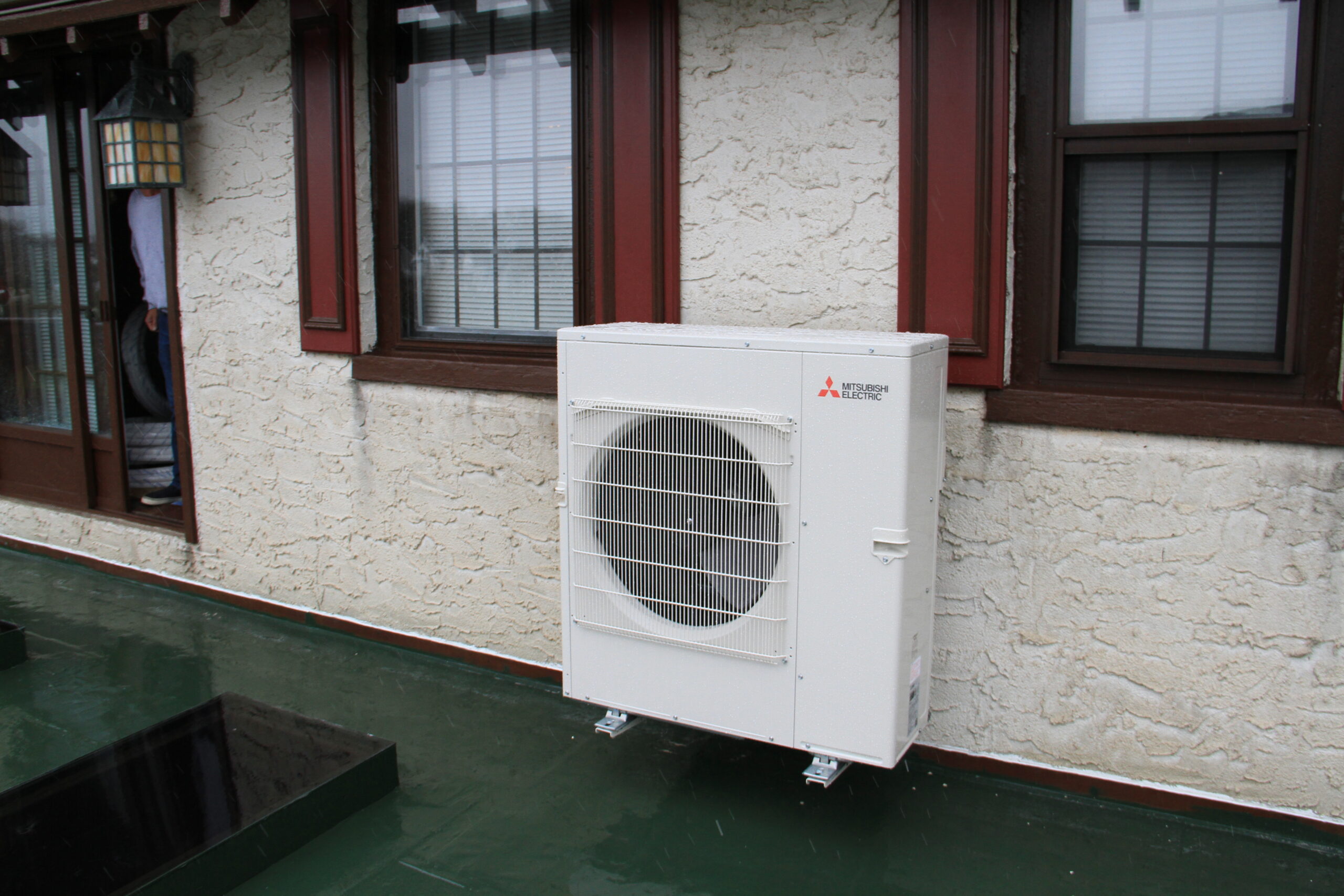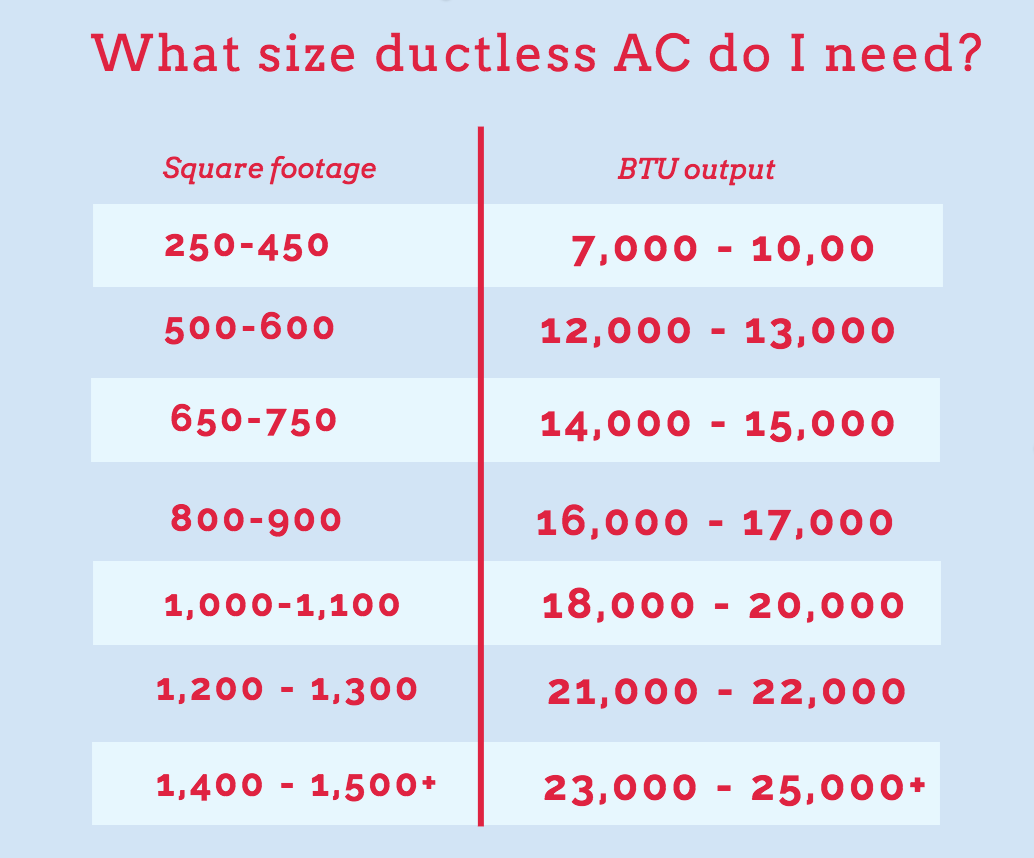What's the Cost to Install A Ductless AC in New Jersey?
November 11, 2024

The cost to install a ductless mini-split AC in New Jersey ranges from $4,500 to 12,000+.
So why the broad price range?
Well, like any big appliance, your overall cost depends on various factors. For example, the cost to install a ductless AC is determined by:
- The number of units needed
- The size of the unit(s)
- The efficiency level you choose
- How difficult the installation is
- The professional you choose to install the unit(s)
To help you budget for your ductless AC installation, we’ll explain the 4 factors above and how they affect pricing.
Cost factor #1: The number of units needed
How this affects price: The more units you need, the more your overall installation cost.
Not sure how many ductless units you’ll need to cool your home? Well, let’s start with the basics:
How many rooms/areas do you need cooled?
- If you only need one area/room cooled, you’ll likely need a “single zone” ductless installation.
- If you need more than one area/room cooled, you’ll likely need a “multi-zone” ductless installation.
- We’ll explain…
A single zone installation refers to installing one outdoor unit (condenser) and one indoor unit (evaporator). This option is applicable to homeowners who only need to cool one room/area, such as a garage, add-on room or sunroom. The cost for a single zone installation usually ranges from $4,000 to $7,000.
A multi-zone installation is applicable to homeowners who need to cool more than one area/room in their home. The good news is that up to 4 indoor ductless AC units can be installed/connected to a single outdoor condenser. The cost for a multi-zone installation usually ranges from $7,500 to $12,000+.
For example, the cost of installing 1 outdoor condenser with 4 indoor evaporators usually ranges from $7,500 to $8,500. If you need more than 4 indoor units installed, though, you’ll need to factor in the price of an additional condenser installation.
The advantage of a multi-zone ductless installation is that they allow for varying temperatures in each room that has a ductless evaporator. For instance, you can keep your living room set to 77° and the bedroom set to 68° if both rooms are cooled with different ductless indoor units.
Cost factor #2: The size of the unit(s)
How it affects price: The “larger” the ductless air conditioner, the more expensive the unit.
Ductless units are sized by their “BTU output”, which refers to how much heat they can remove from the area in a given time. Ductless unit sizes usually range from 9,000 BTUs to 44,000 BTUs.
Note: 1 BTU equals roughly the same amount of heat energy that is produced by burning through one match.
Not sure what size you need? Well, first off, you don’t get to pick the size you want. The size you need to cool a room is simply the size you need and is determined by how much heat the room accumulates over time.
You see, sizing a ductless unit correctly is important. Going too big or too small means a shortened unit lifespan, lowered comfort levels and higher energy bills.
So how do you know what size ductless AC to get? Well, the only way to get an accurate sizing is to have a professional perform a cooling load calculation for the areas you want cooled. But to give you a rough idea of the size you might need, check out the guidelines below.

Note: If you’re installing a multi-zone system (i.e. more than one indoor evaporator), you’ll want to make sure that the sum of all your indoor units’ BTU outputs is no more than 30% more than the outdoor unit’s BTU output.
Cost factor #3: The efficiency level you choose
How it affects price: The higher the ductless unit’s efficiency, the more it will cost.
Every ductless unit has a specific SEER rating from 14 to 30+, which measures how efficient the unit is.
A higher SEER means that the unit is more efficient, meaning it can produce the same amount of cooling with less electrical consumption. So, even though higher-SEER units are more expensive upfront, they offer lower monthly energy bills, which could pay back that higher price over the lifetime of the unit.
So what SEER do you need? Well it all depends on your budget:
- If you’re on a strict budget and can’t afford the higher upfront cost of a high-SEER unit, we suggest going with a 14-SEER unit (this is the minimum allowable SEER).
- If you can afford the higher upfront cost, we suggest that you go with at least a 16-SEER unit. Be warned, though: Going too high in SEER may not be financially worth it in the long run. Ask a professional to determine whether the monthly savings of a higher-SEER unit will actually pay back its higher installation price over time.
Cost factor #4: How difficult the installation is
How it affects price: The more difficult the installation, the higher your overall cost will be.
The harder it is to install your ductless AC unit(s), the more labor and time it will require. Some examples of “difficult” installations include:
- Having to run refrigerant/electrical lines through hard-to-access attics or basements
- Installing a ductless system in a home with delicate exterior. Fragile exterior such as stucco might require a carpenter’s skill to cut a 3-inch hole for the refrigerant/electrical lines
- Having to update the electrical system to accommodate the ductless unit’s electrical needs
Cost factor #5: The professional you choose to install the unit(s)
How it affects pricing: Higher-quality contractors usually charge more for AC installations.
Not all HVAC companies charge the same for ductless AC installations. Some charge more, some charge less.
That said, beware of contractors who offer dramatically lower prices than others. Although it may be tempting to choose a much lower installation price, it could cost you a lot more in the long run.
You see, rock-bottom prices are usually a red flag in the HVAC industry as they’re usually followed by shoddy work, which then leads to frequent repairs and higher-than-necessary energy bills.
To avoid that trap, we suggest looking for an HVAC company that:
- Is specifically experienced in ductless AC installations/repairs
- Is licensed and insured in the state of New Jersey
- Provides written, upfront estimates
- Provides at least a 1-year warranty on all installations
- Has been in business for 10+ years
